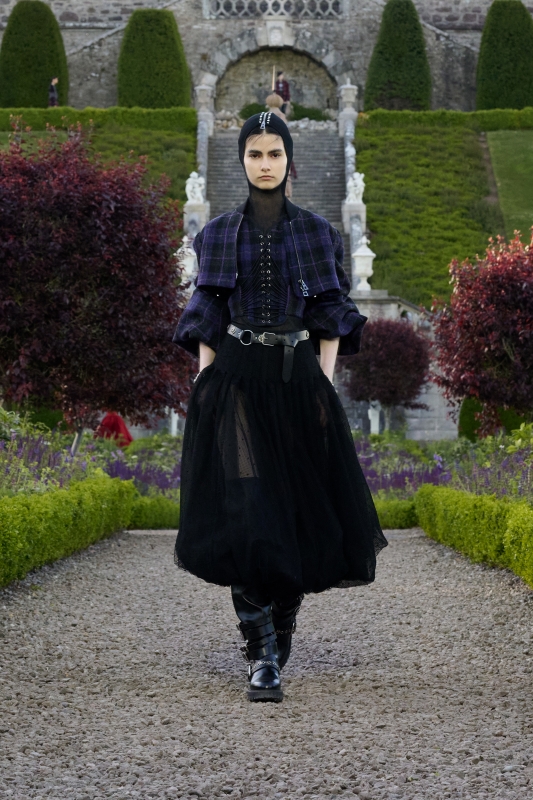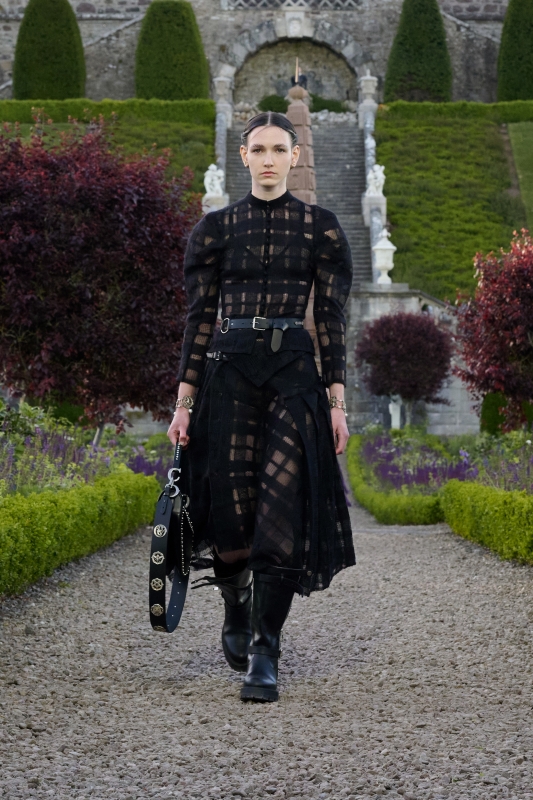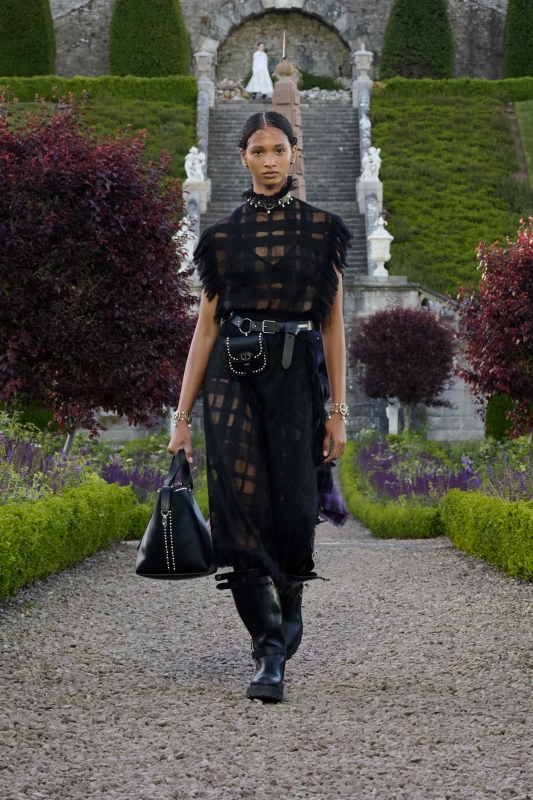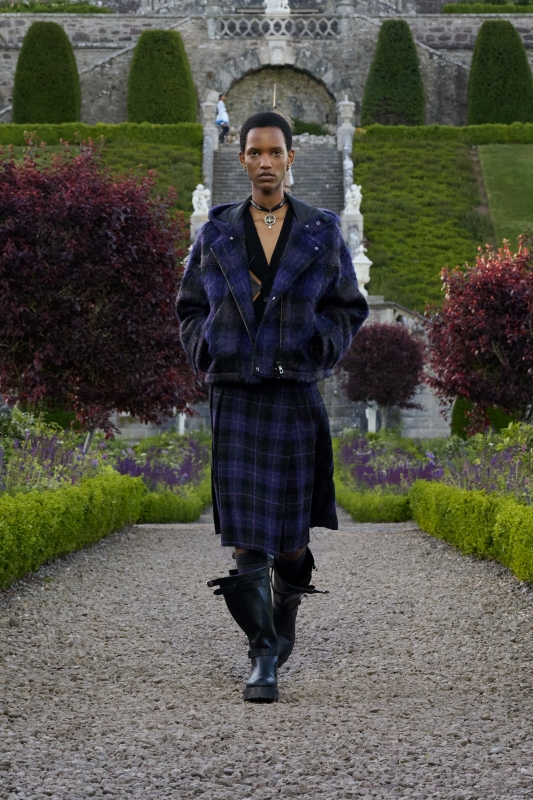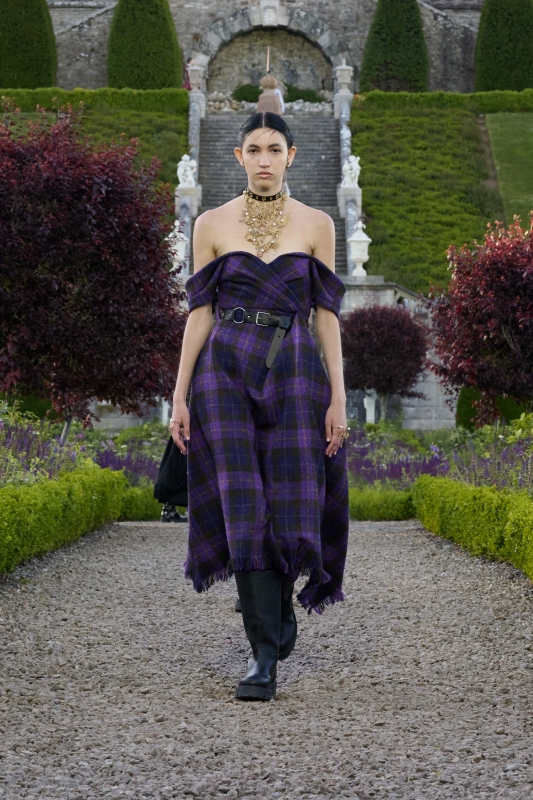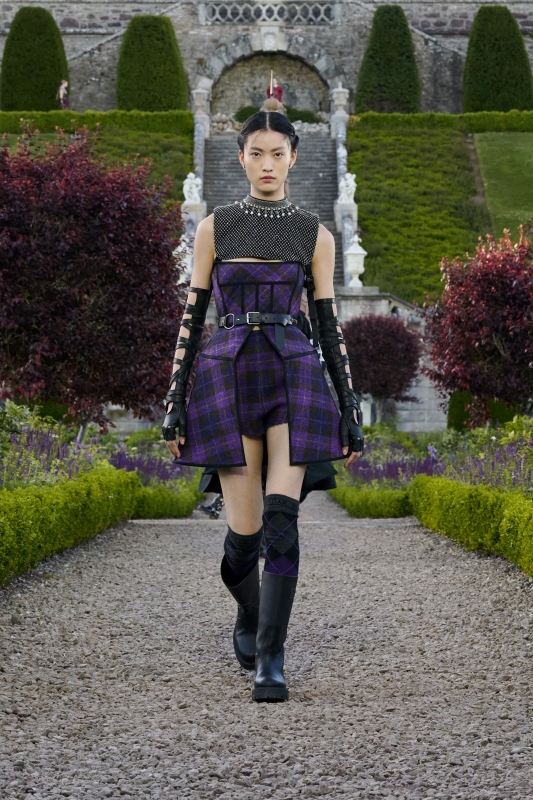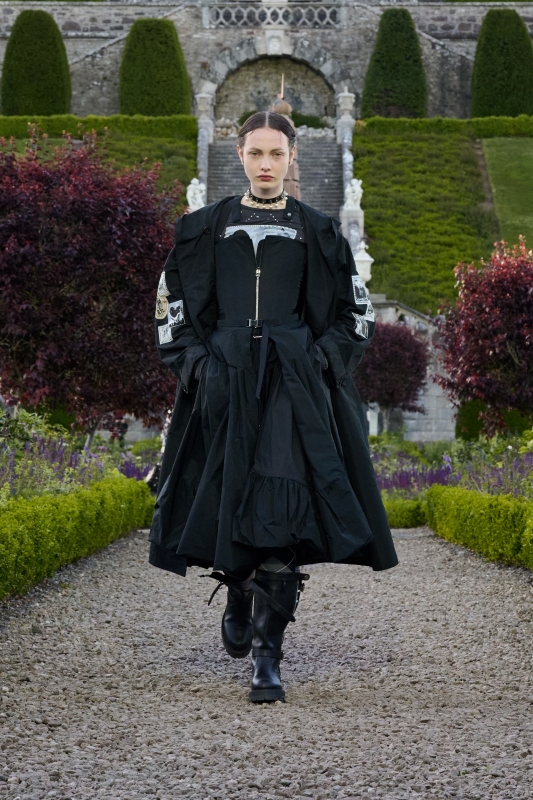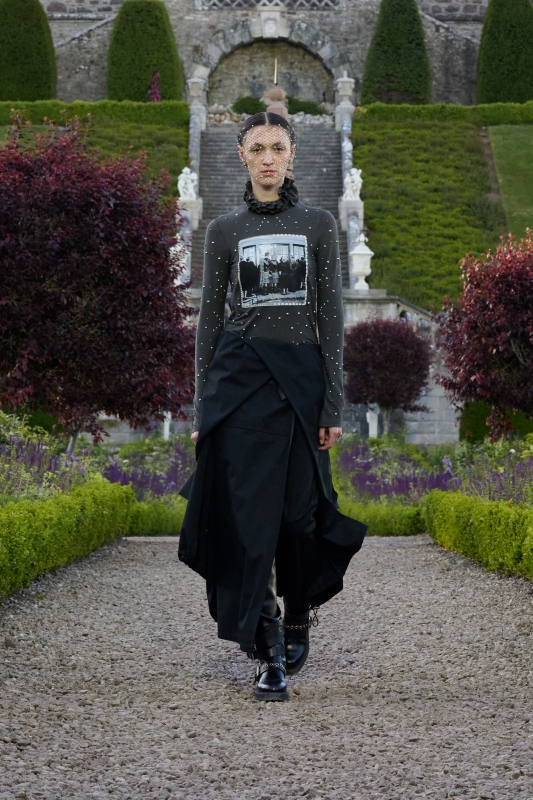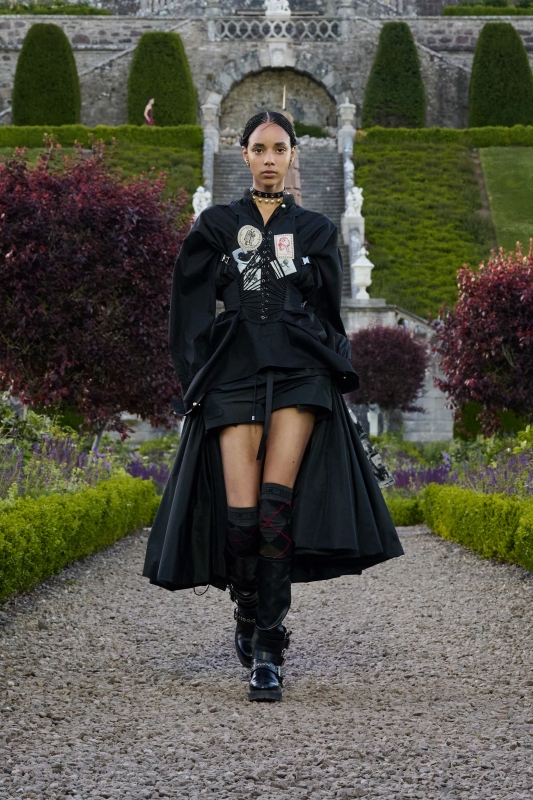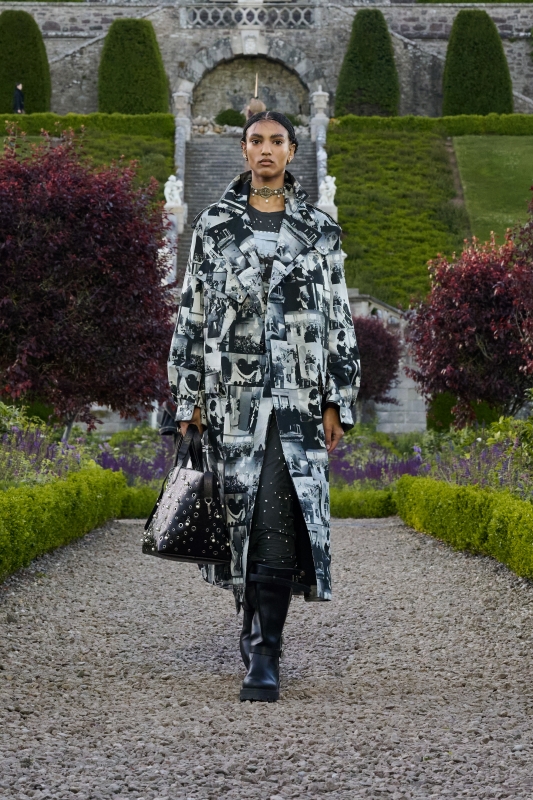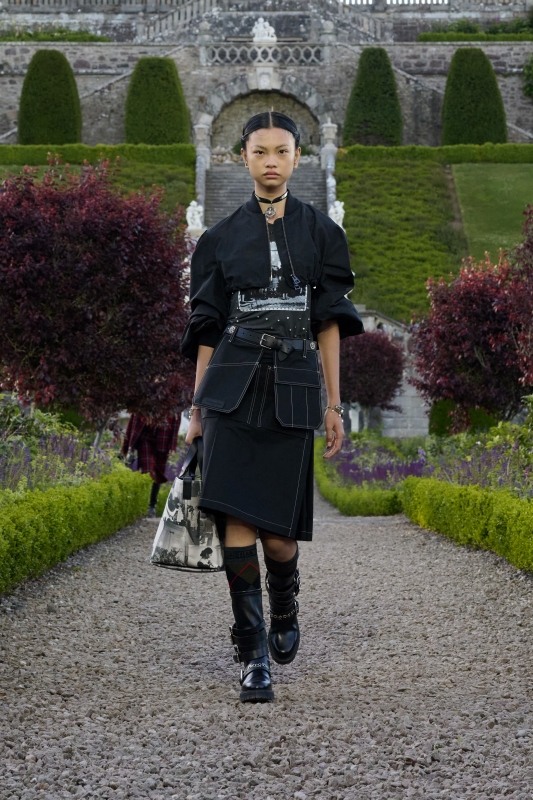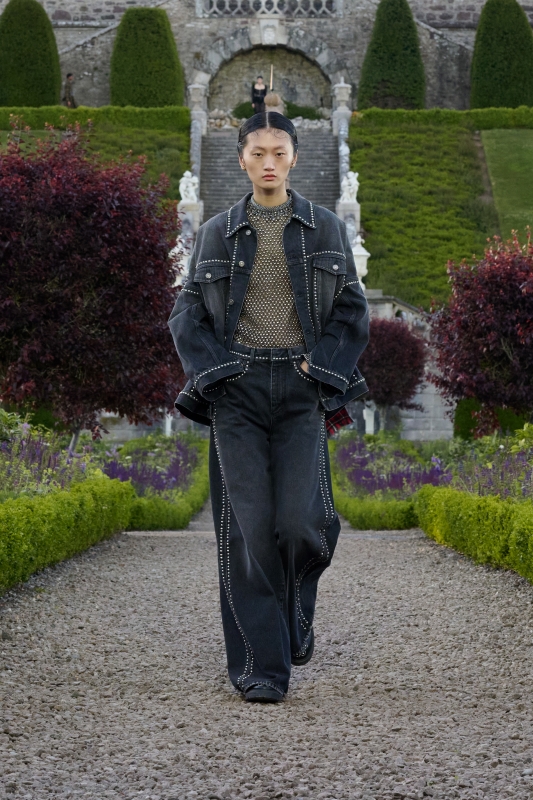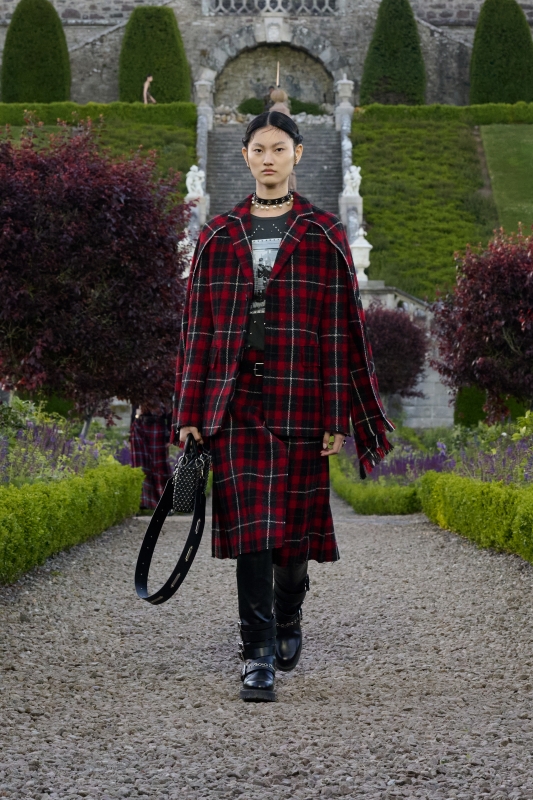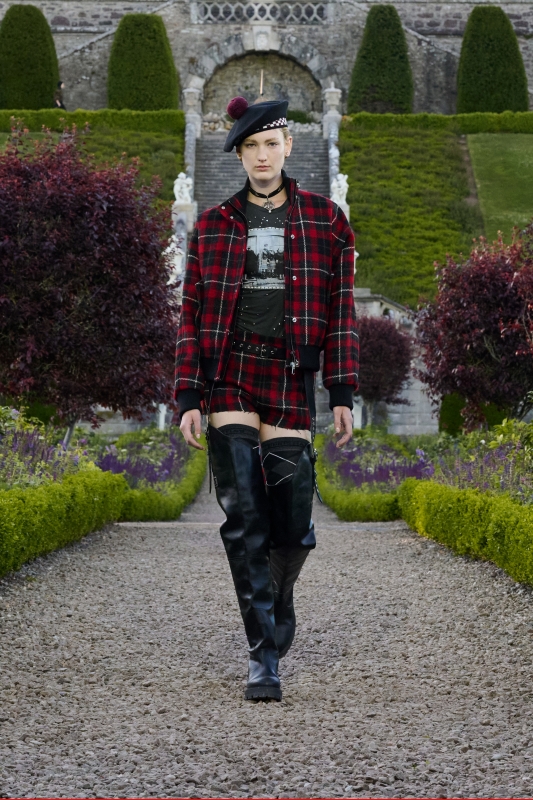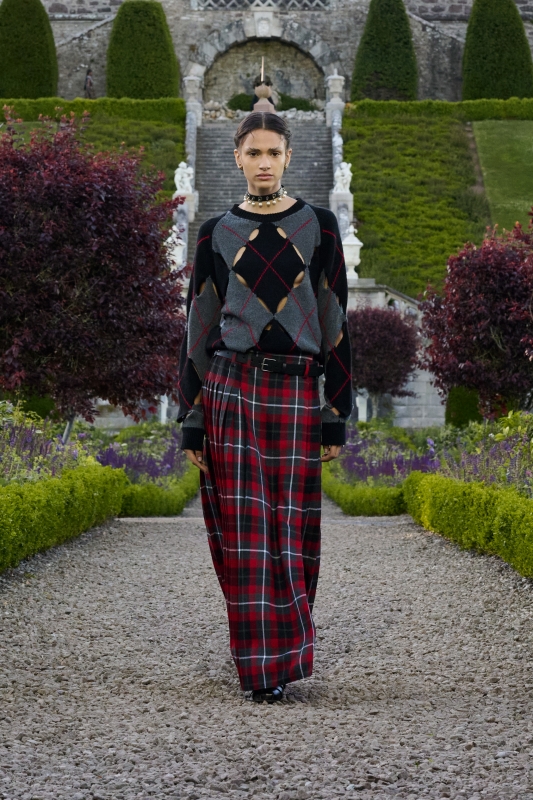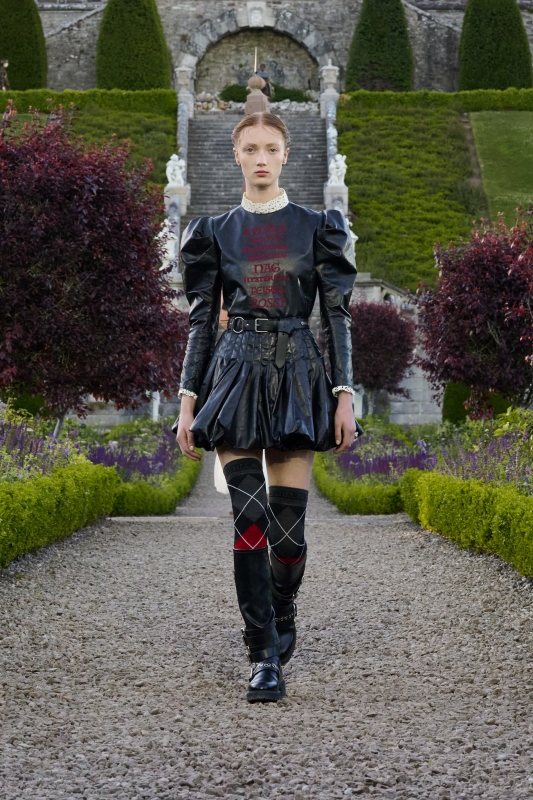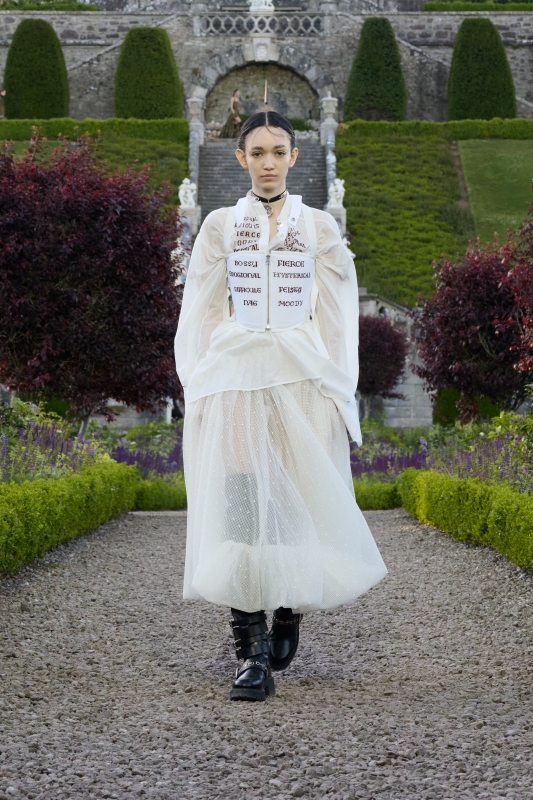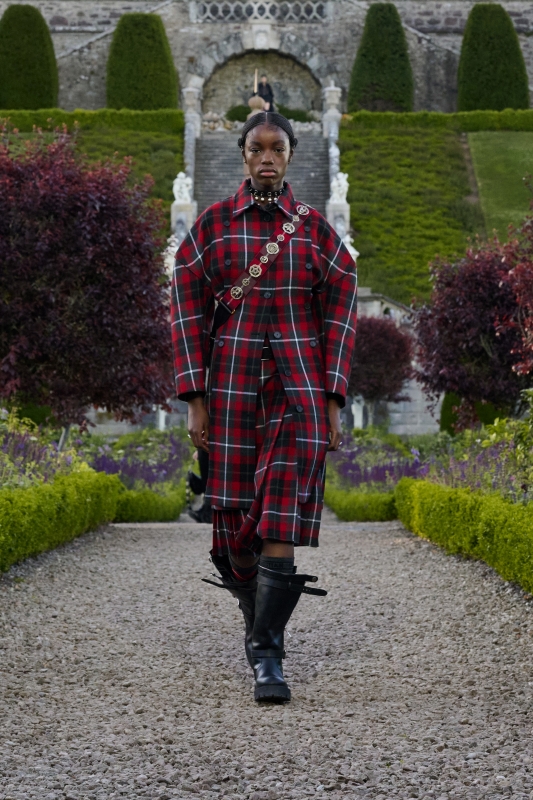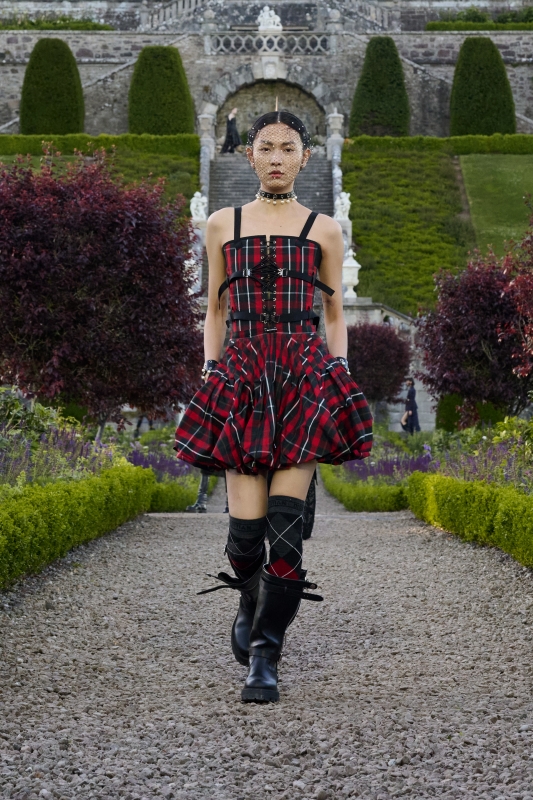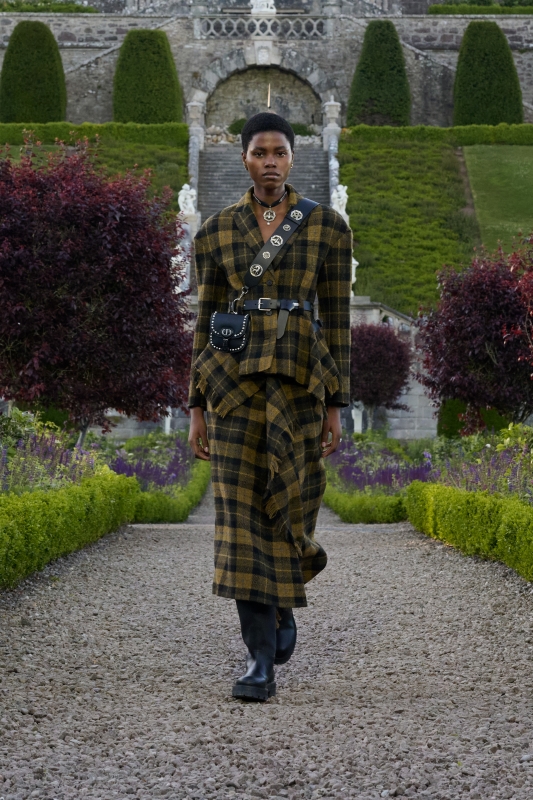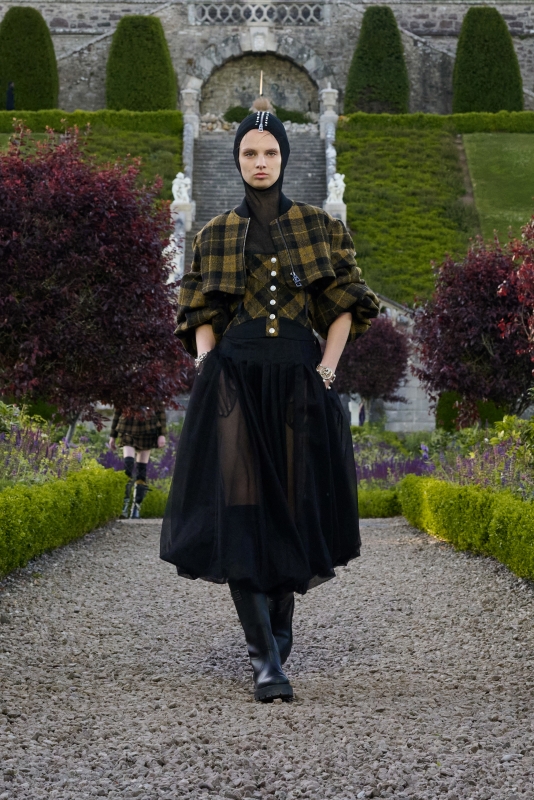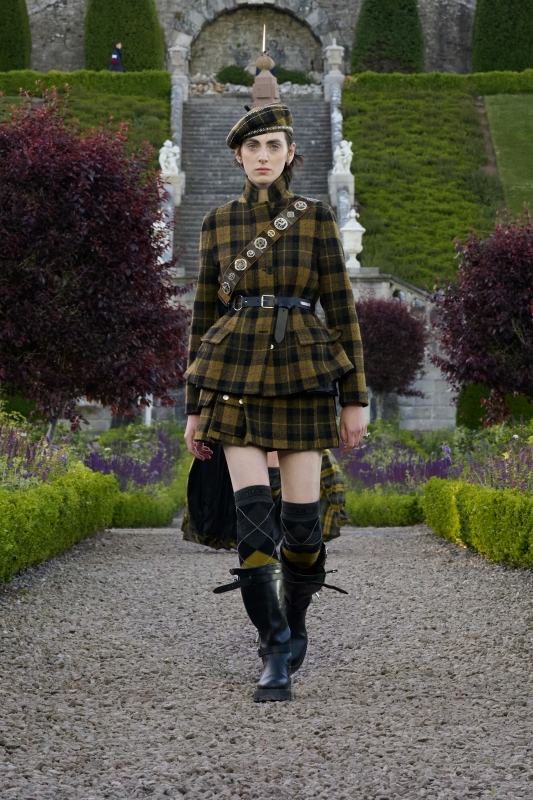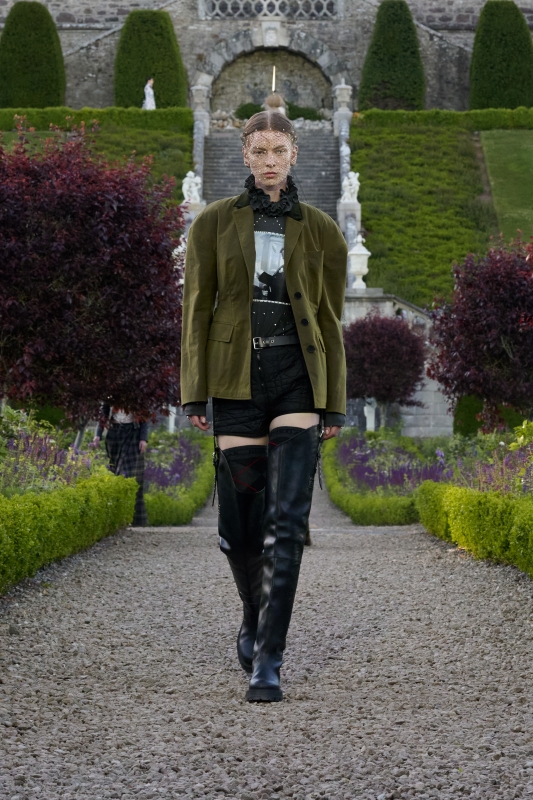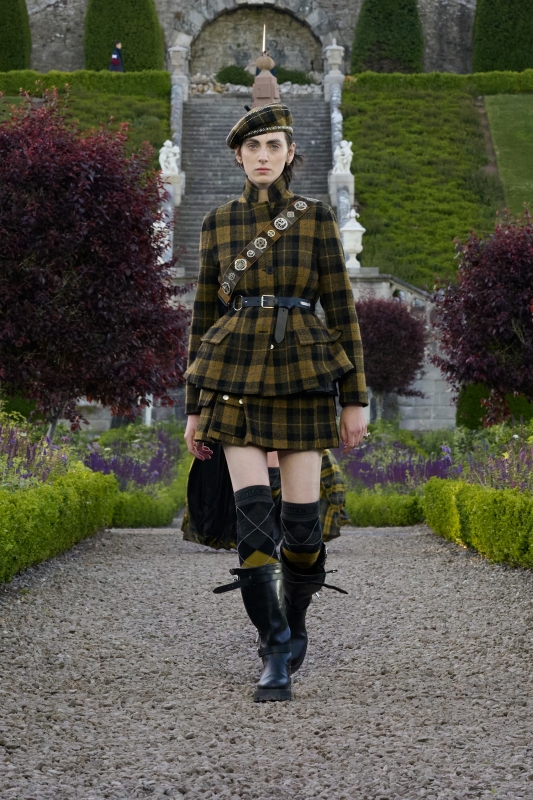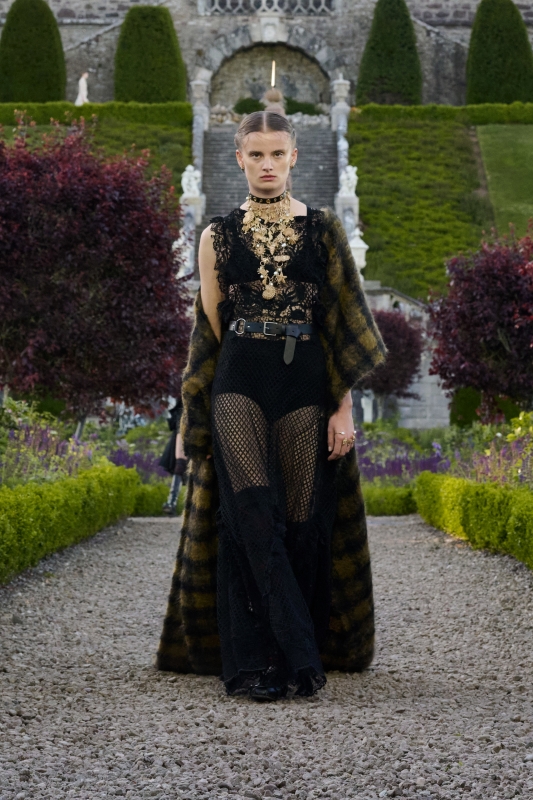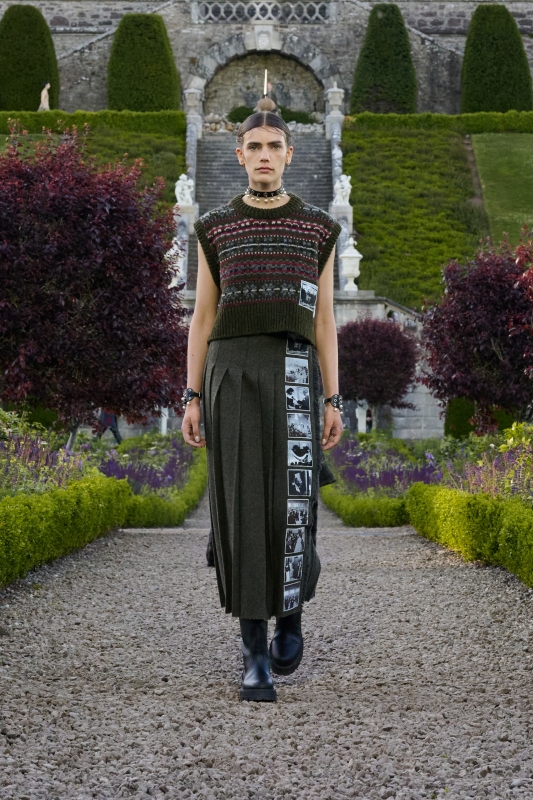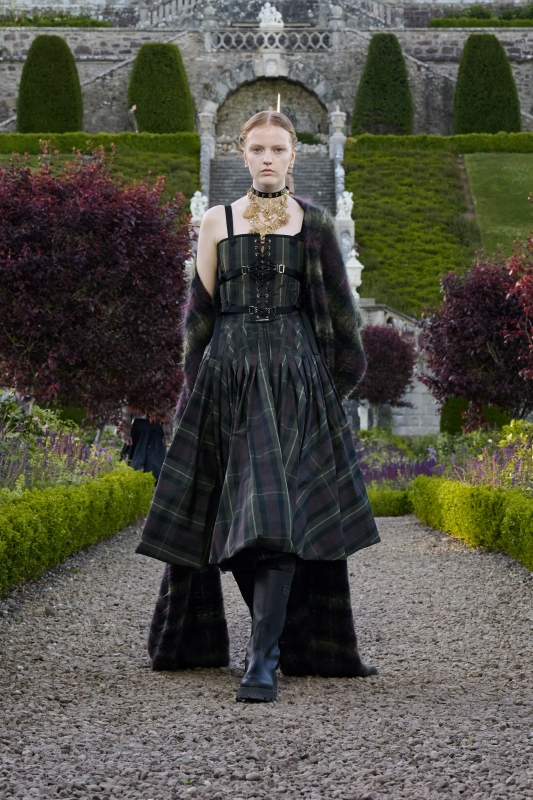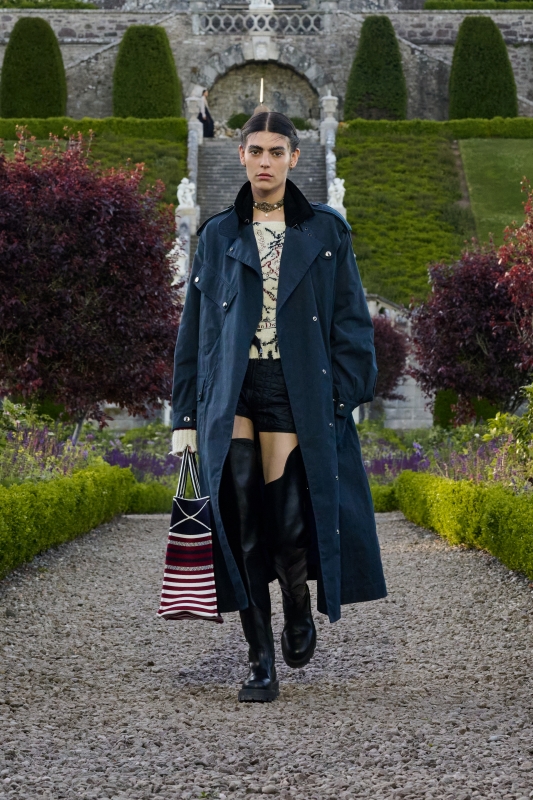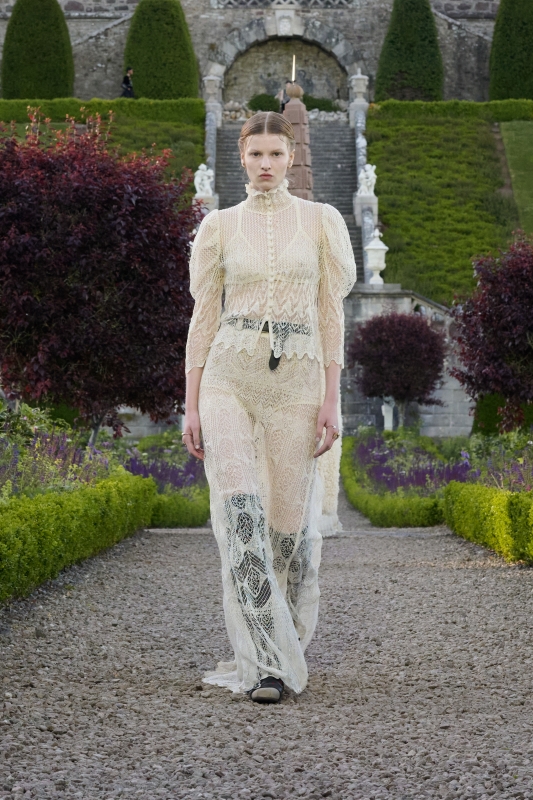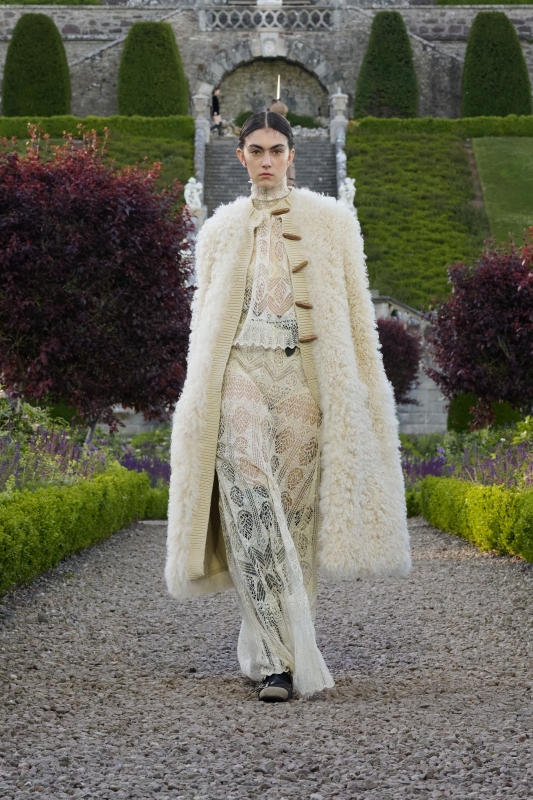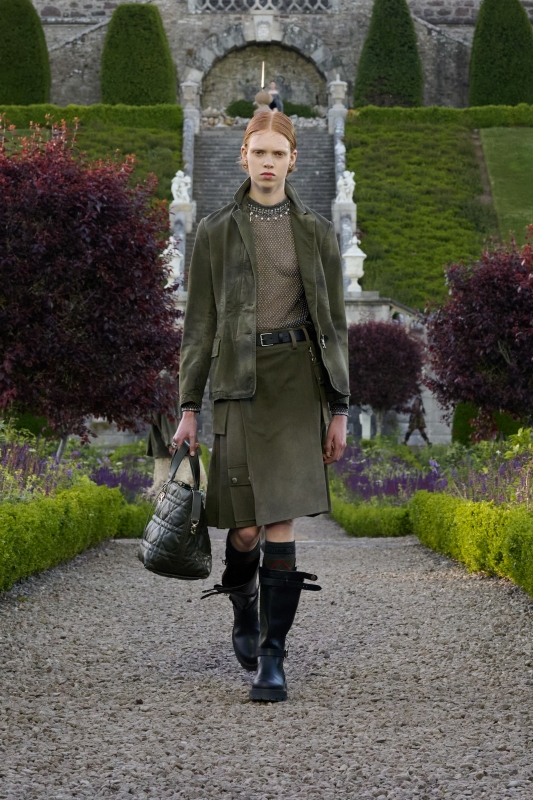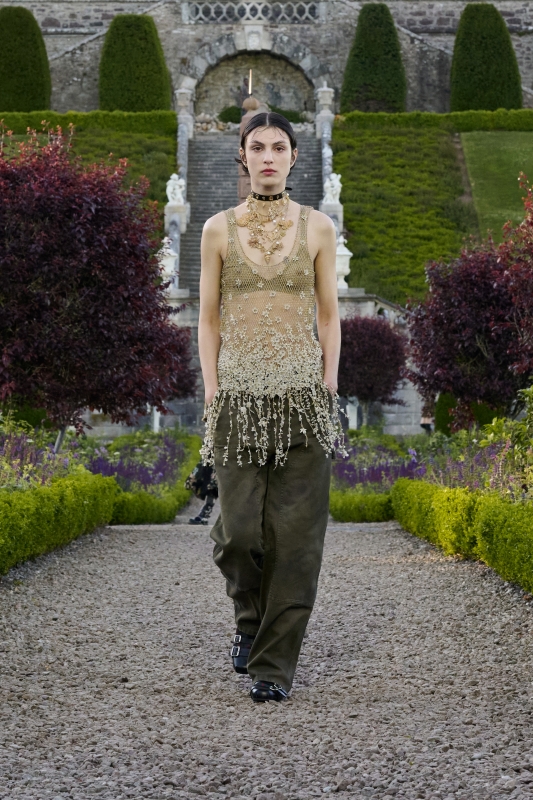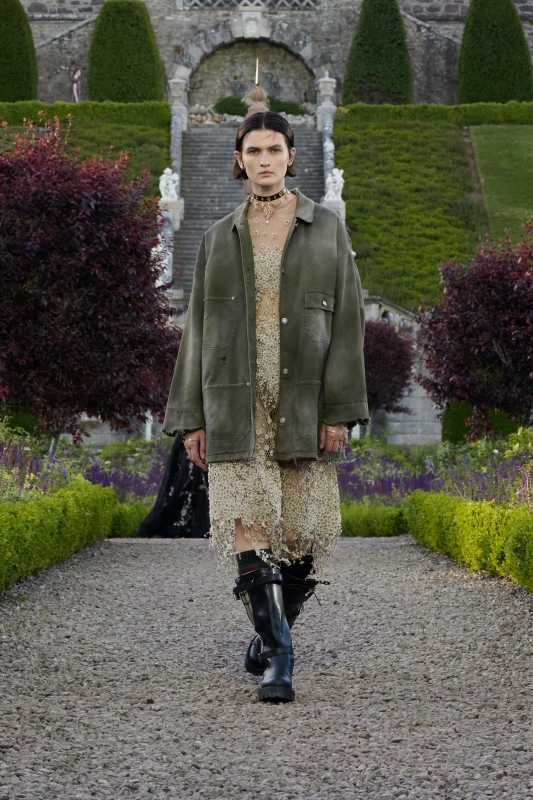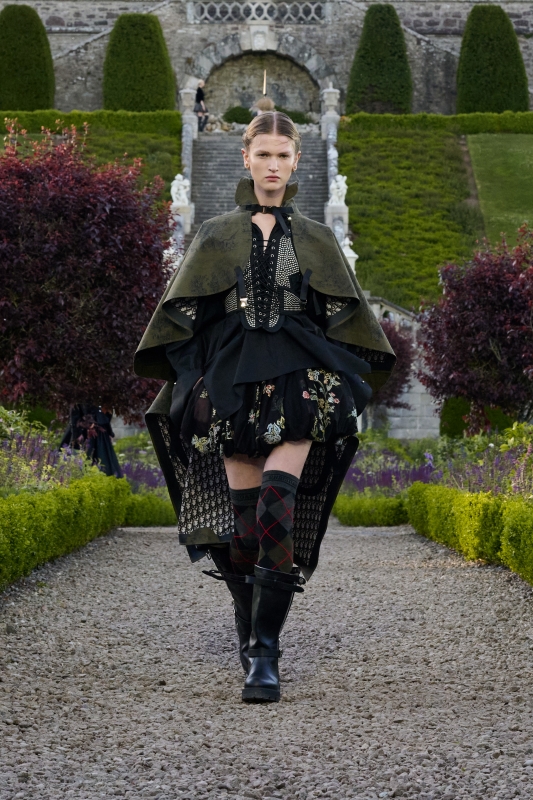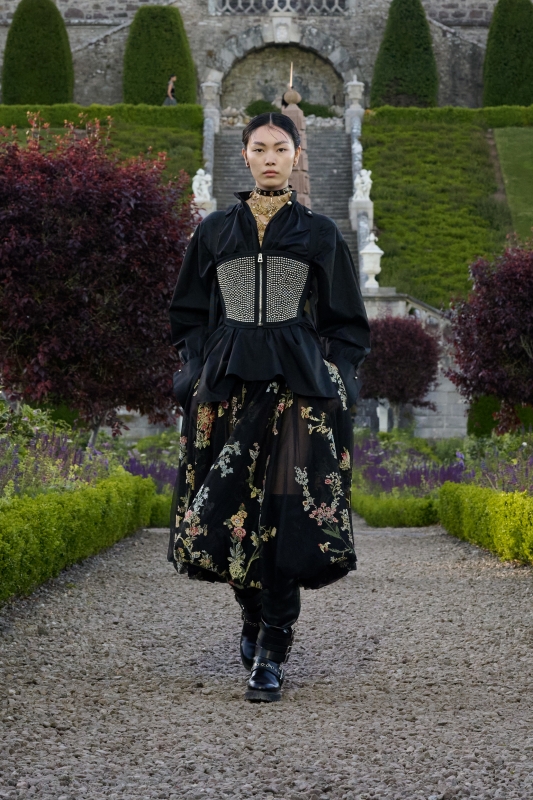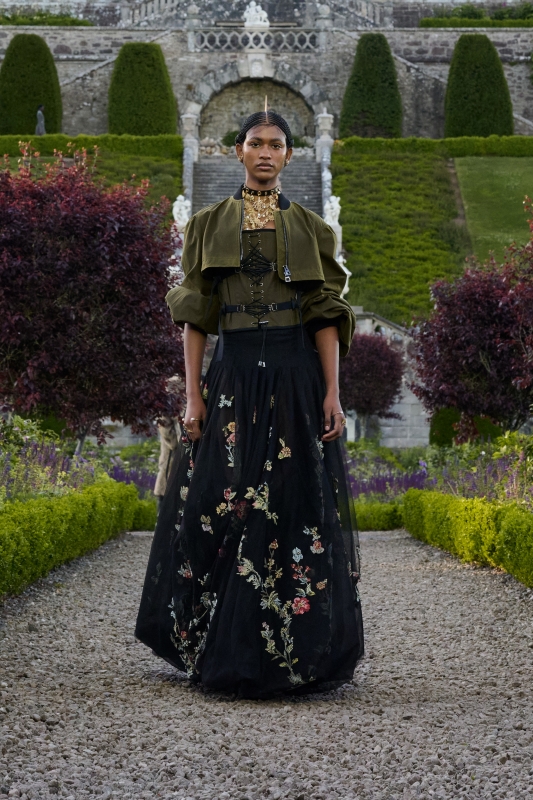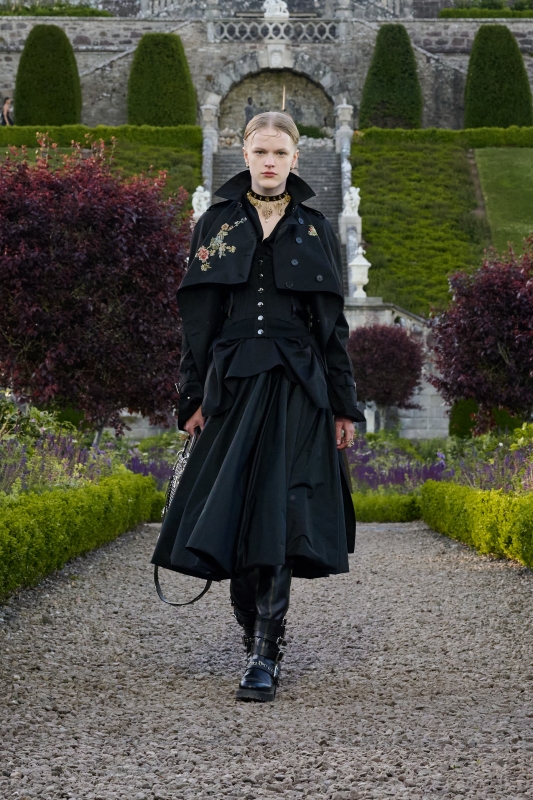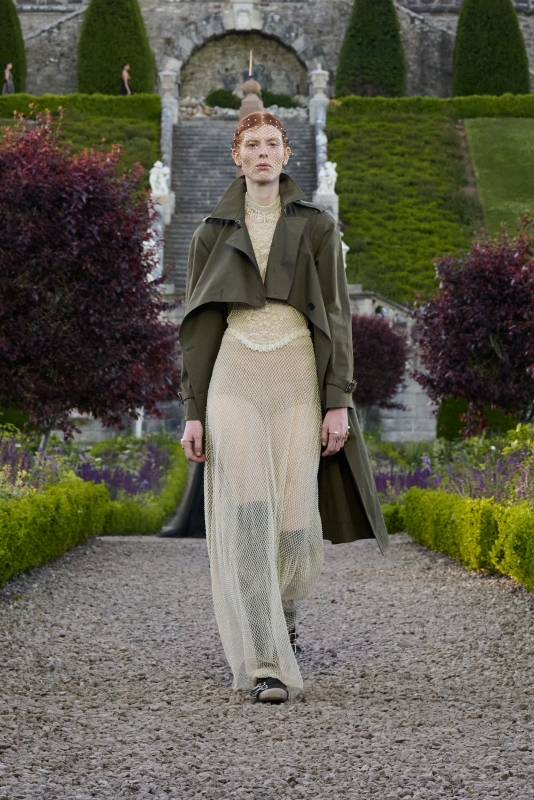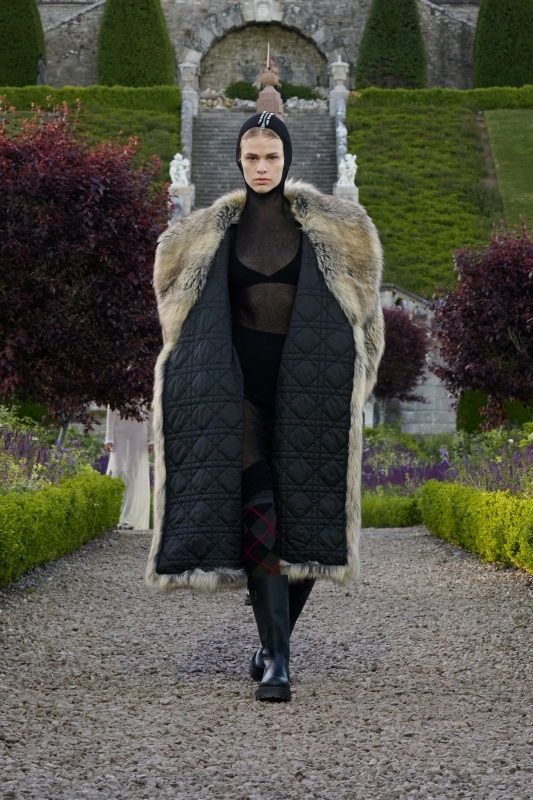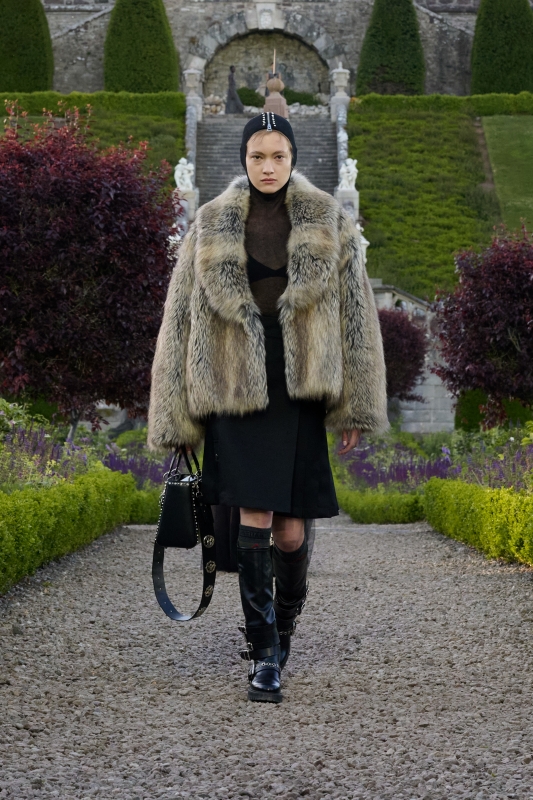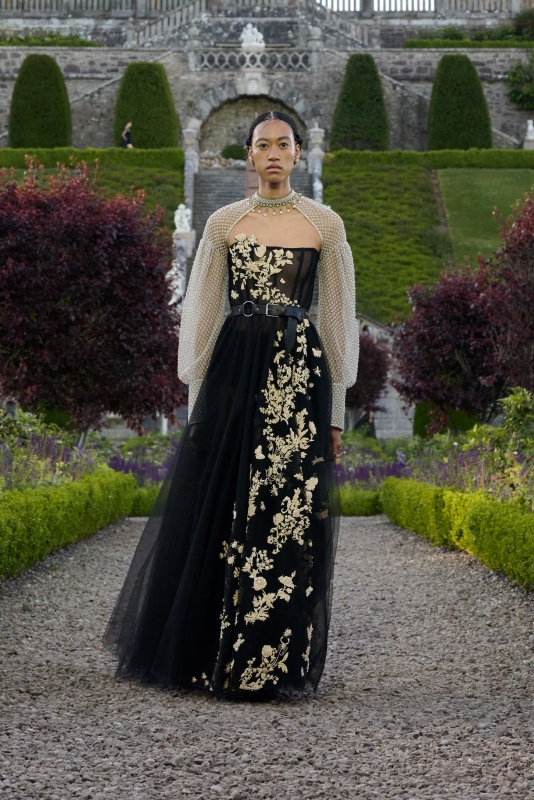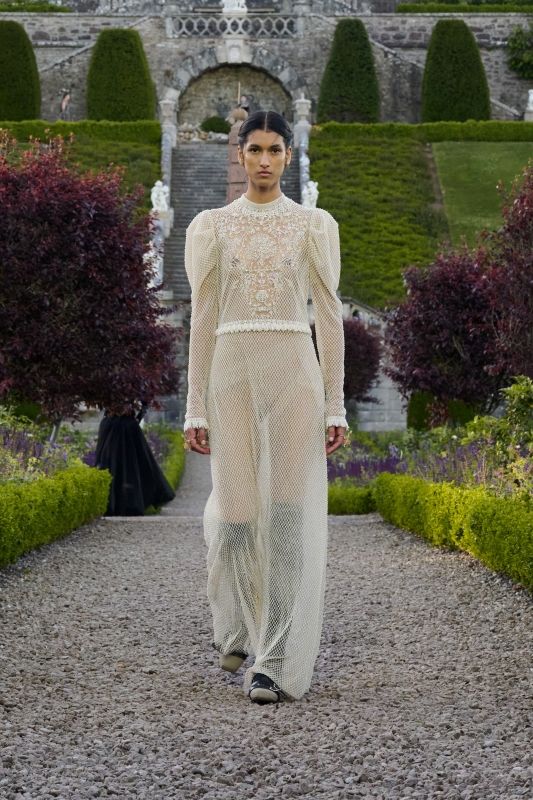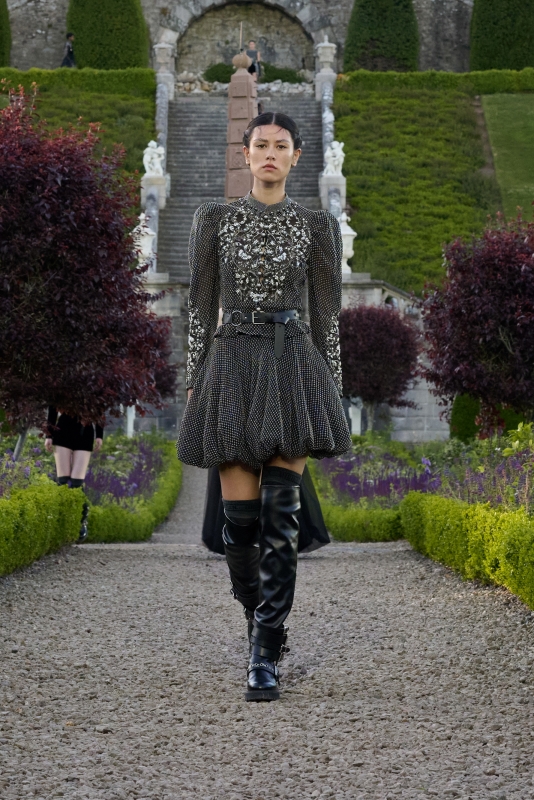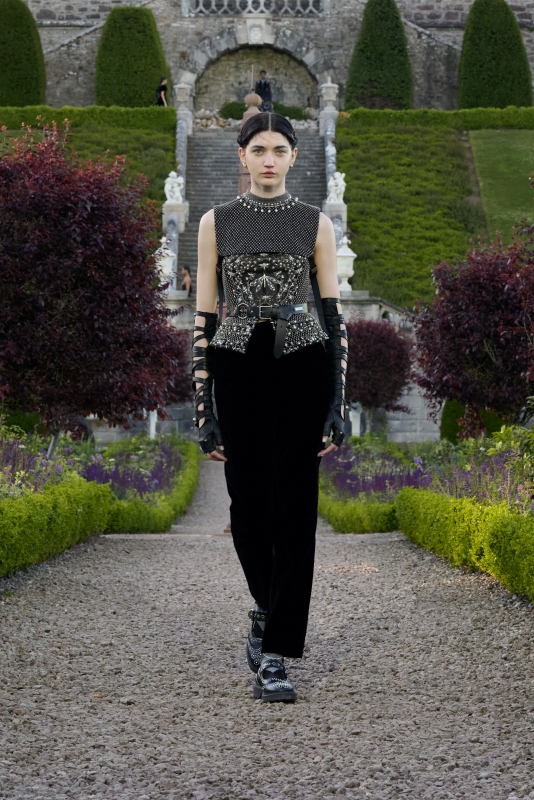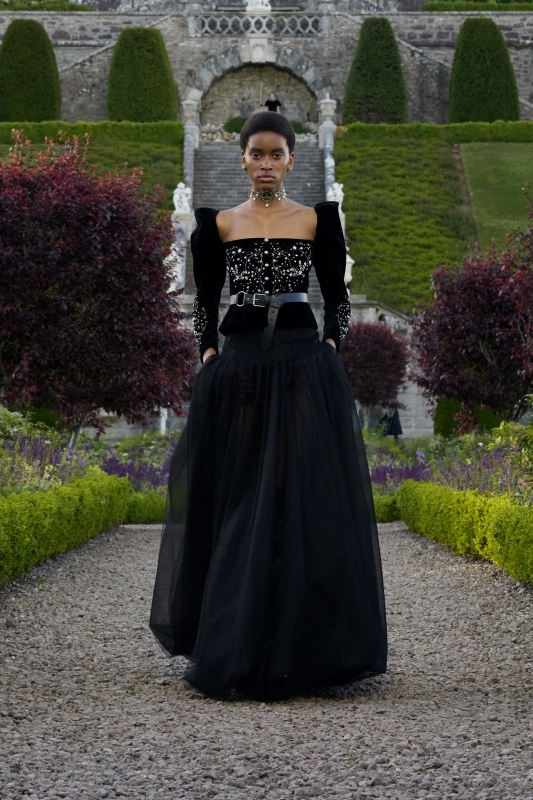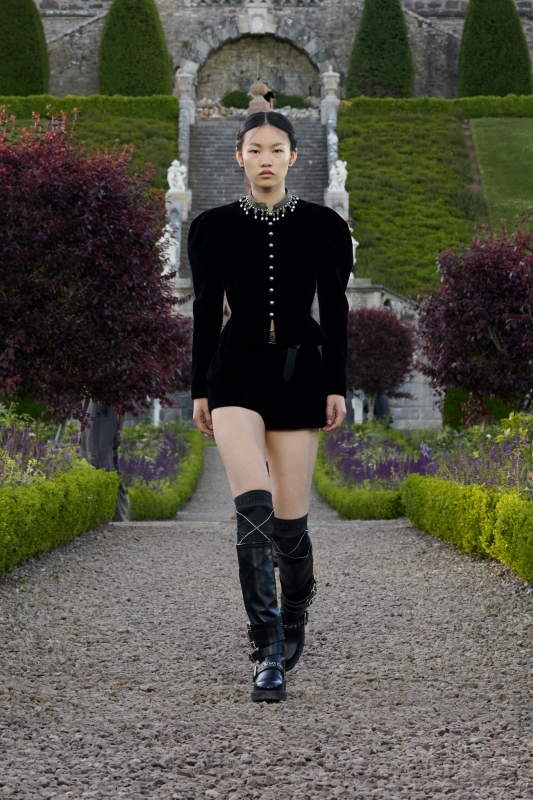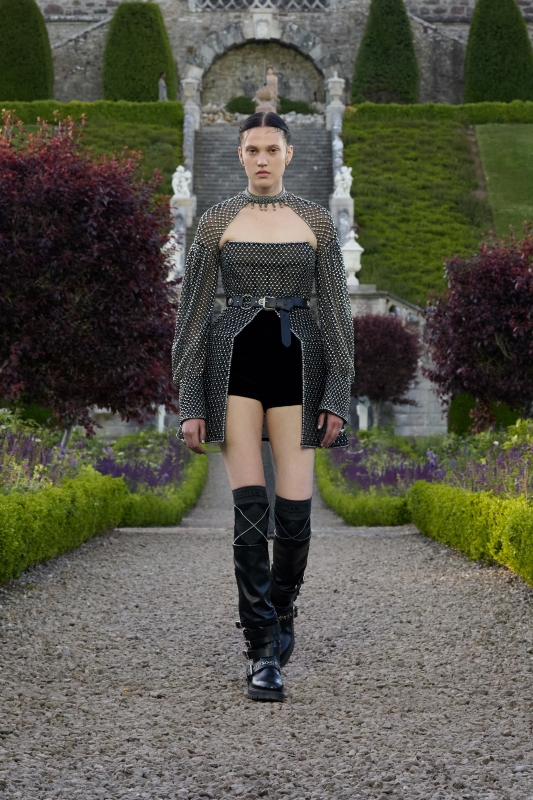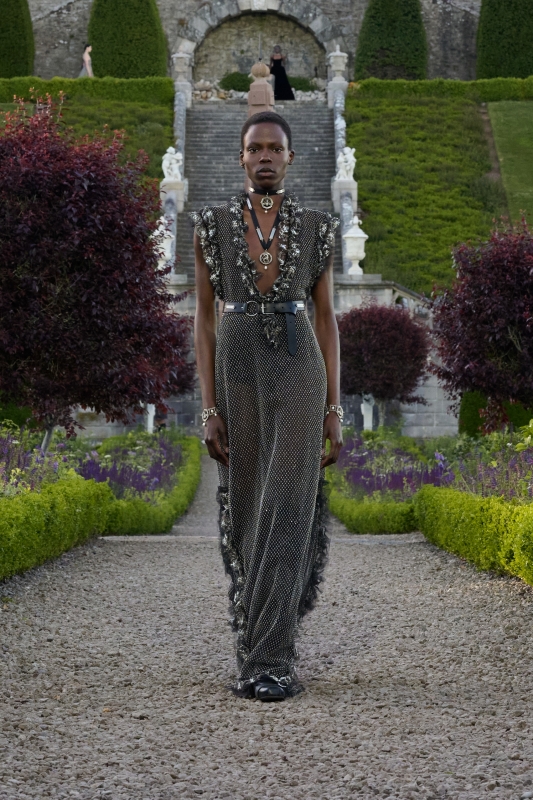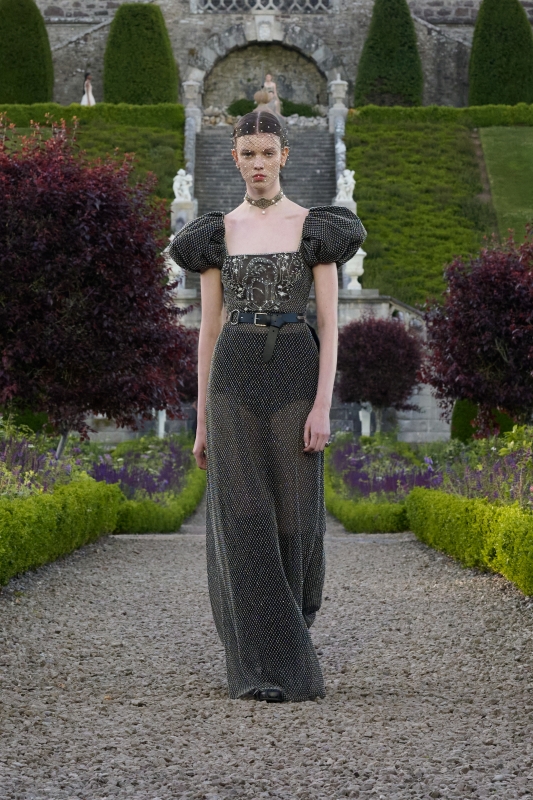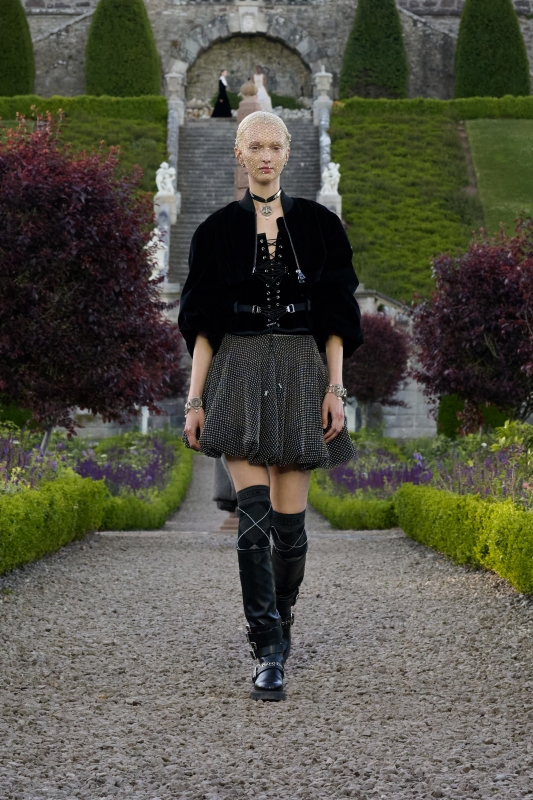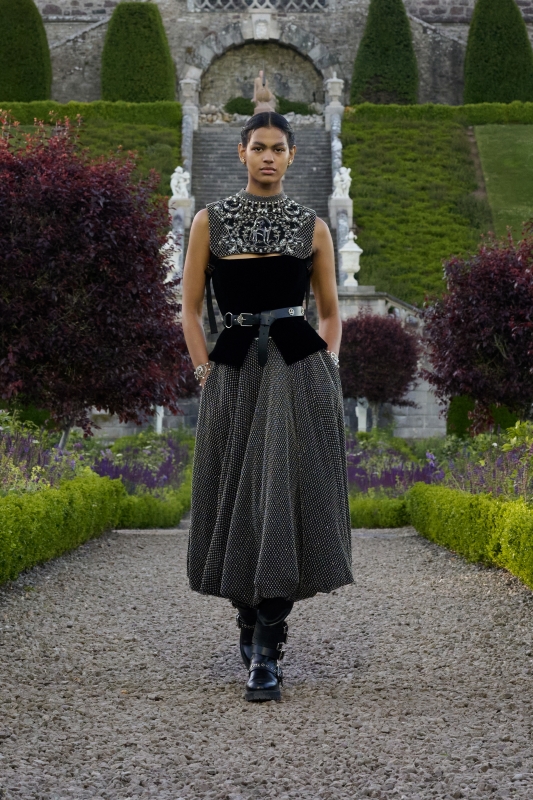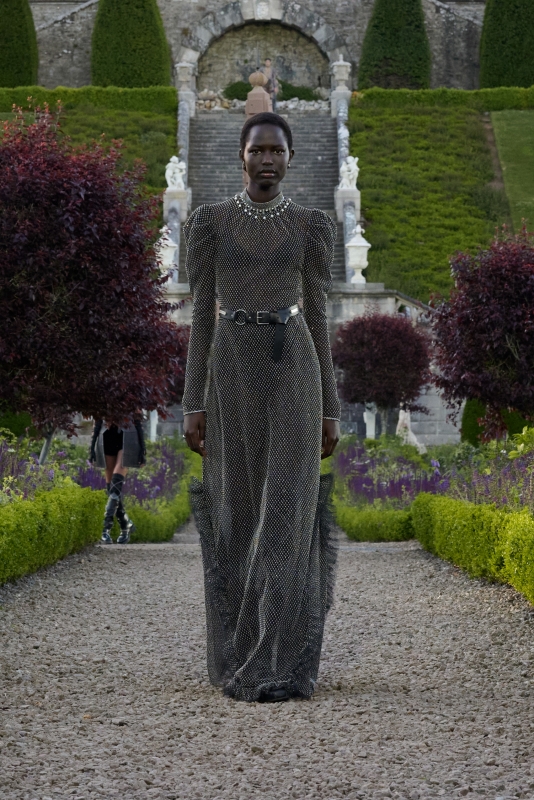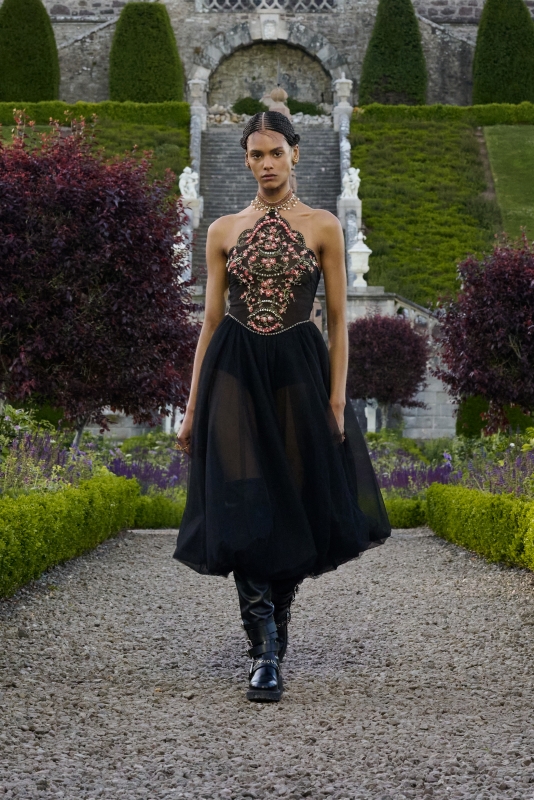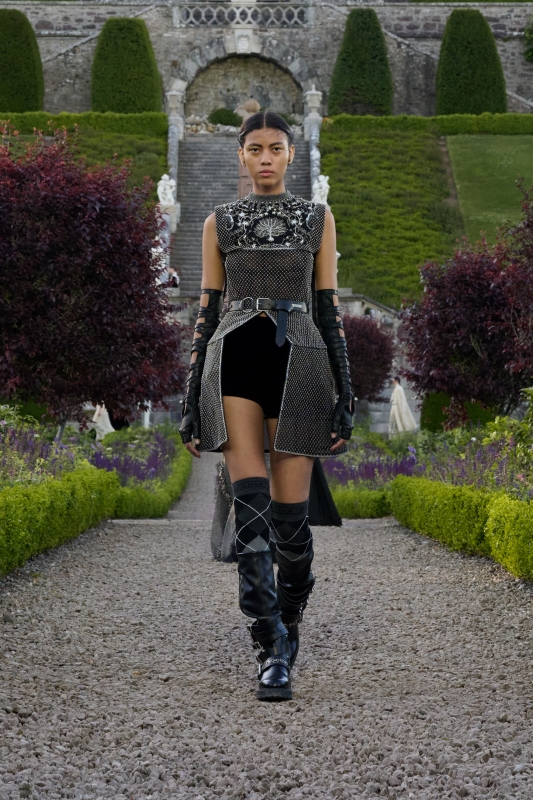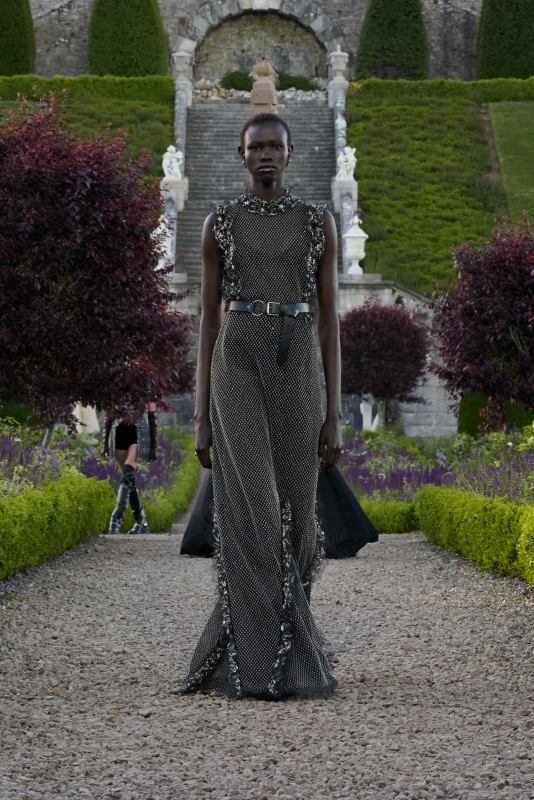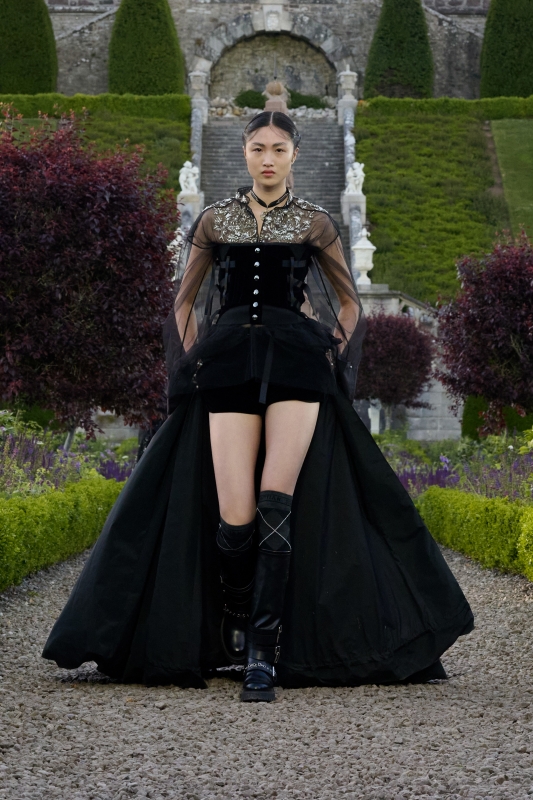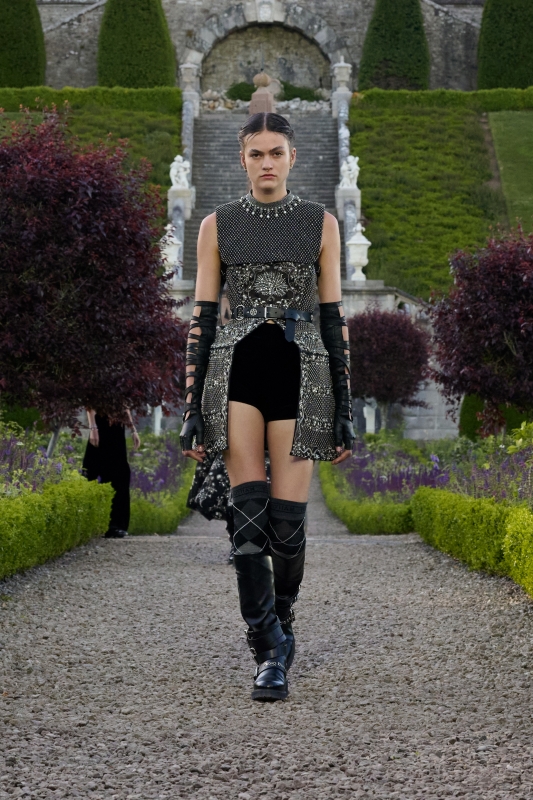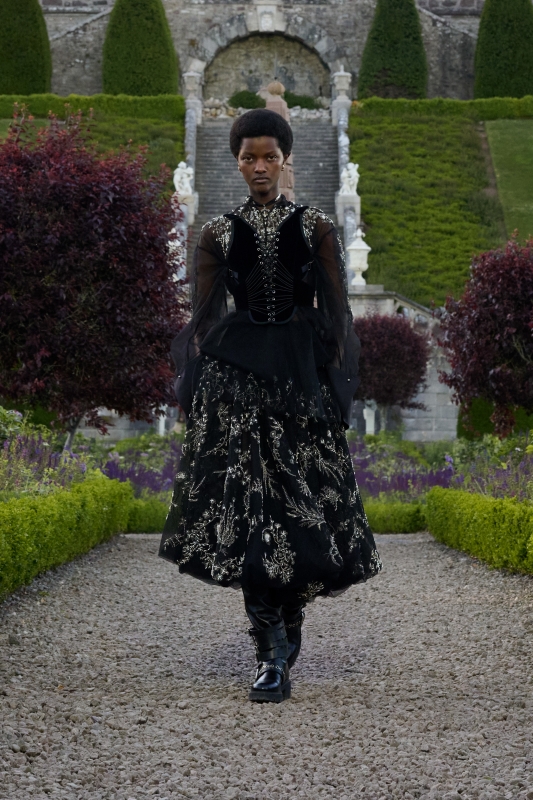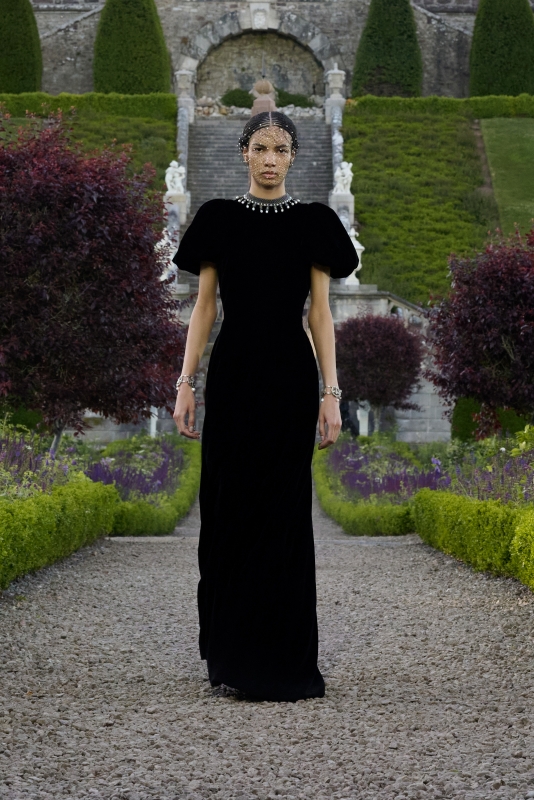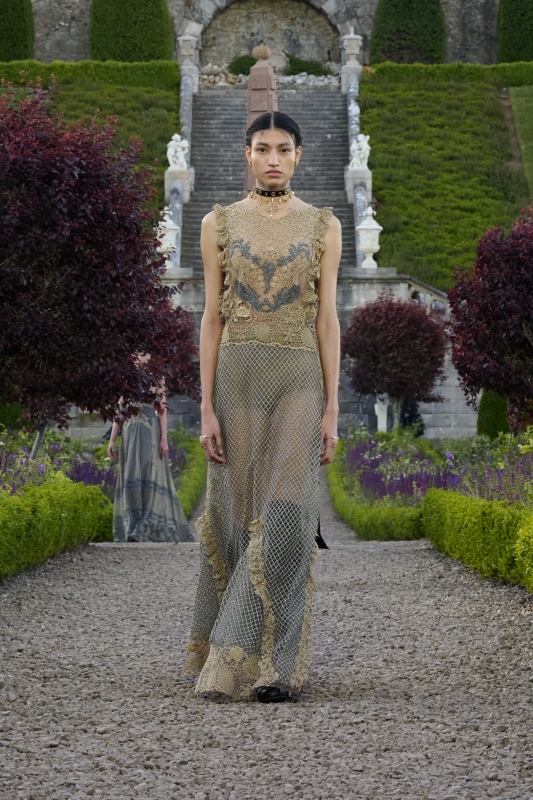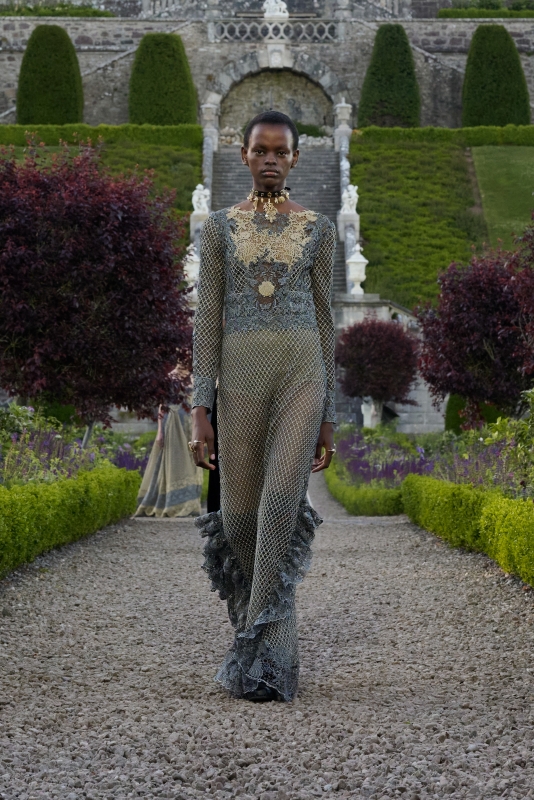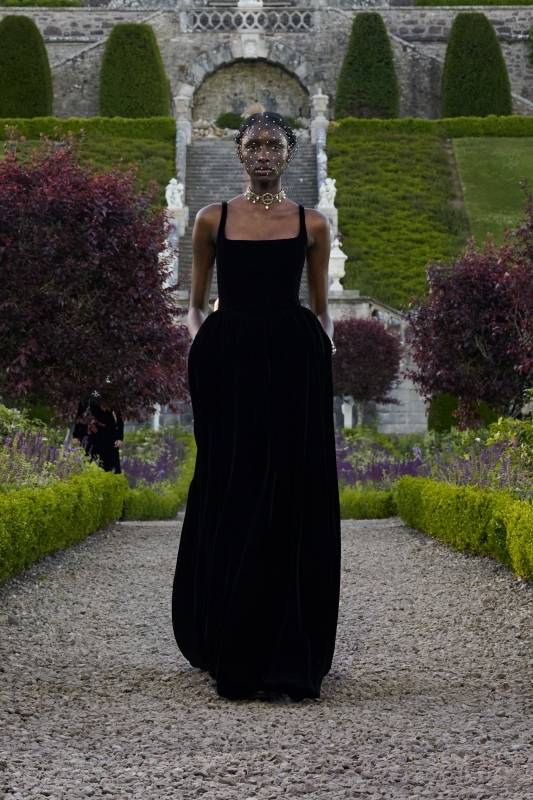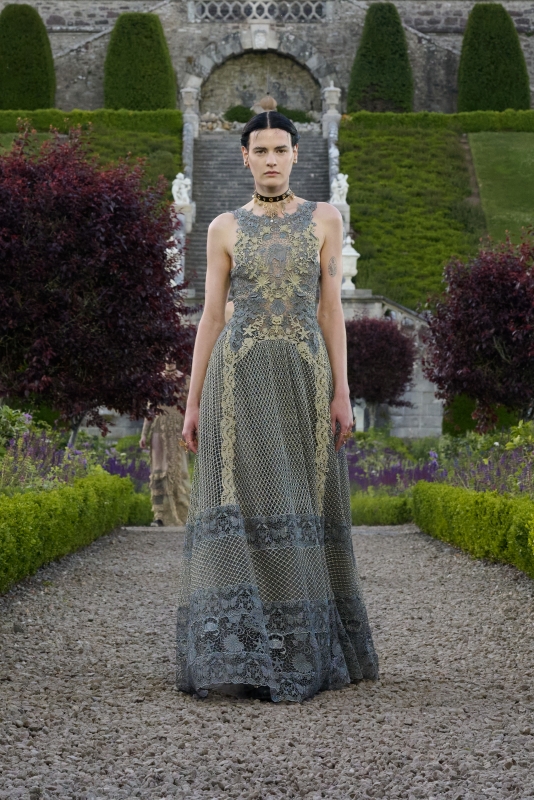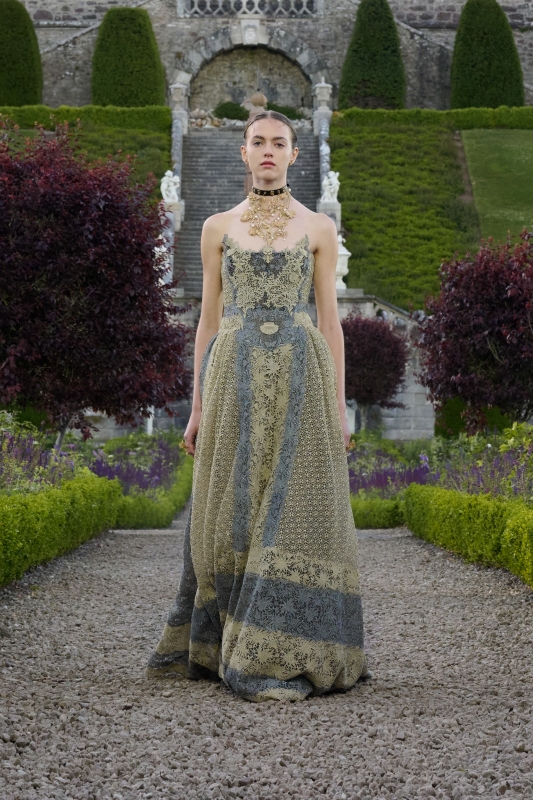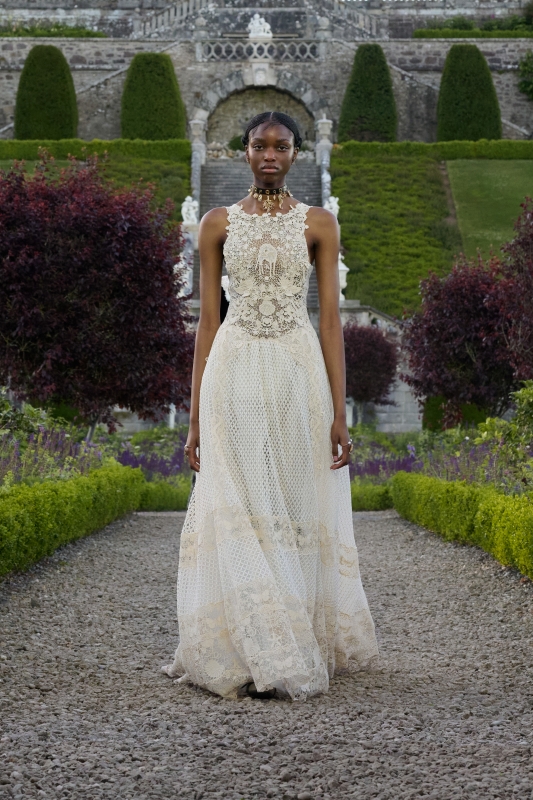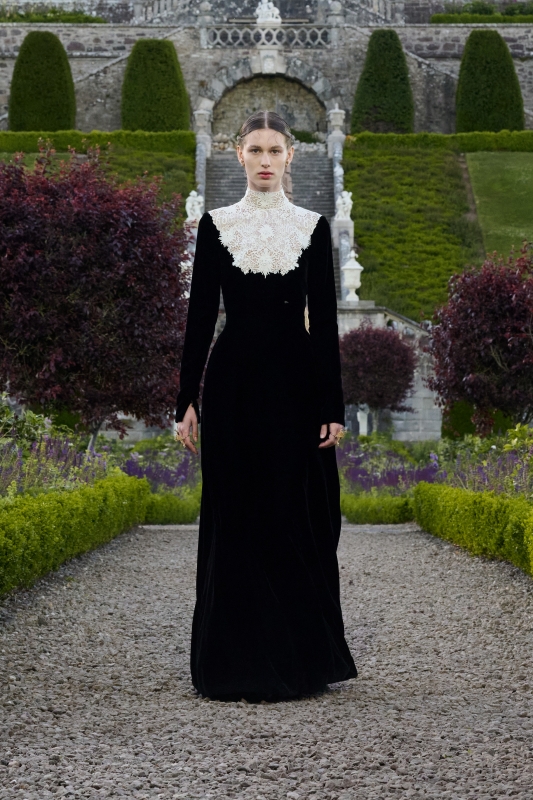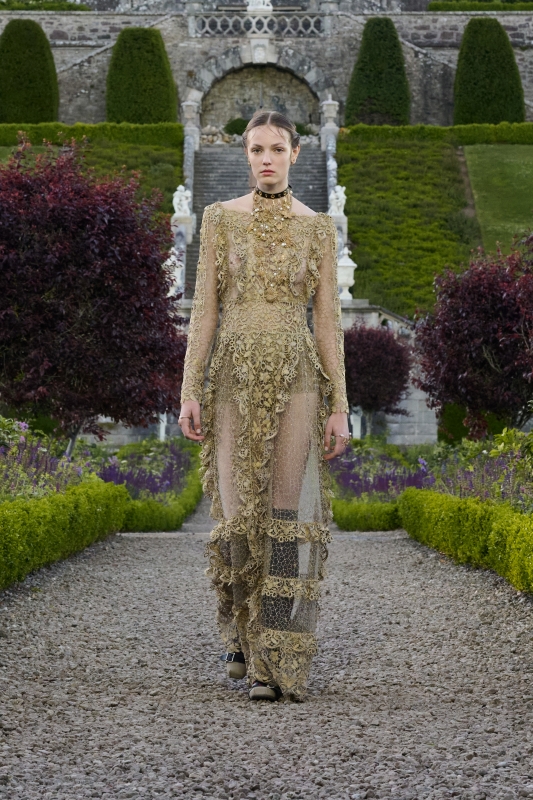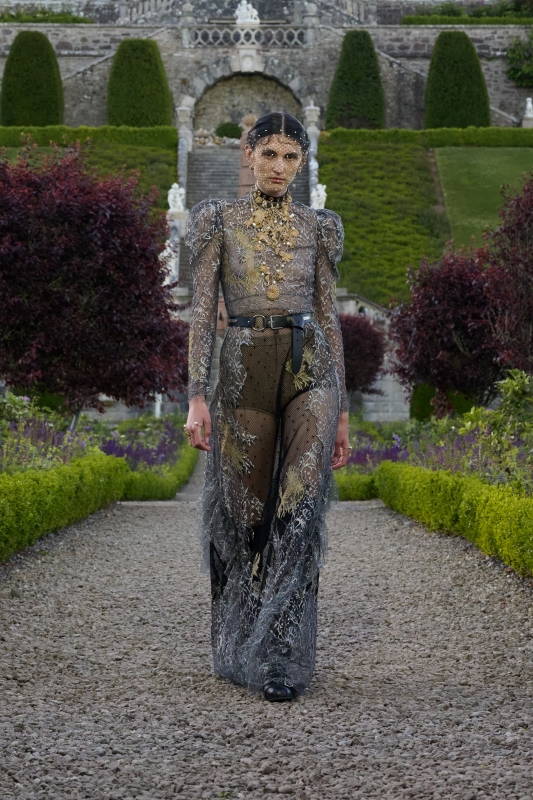
Dior Cruise 2025 Ready-to-Wear Collection in Edinburgh
14 Jun 2024
For Maria Grazia Chiuri, the presentation of the cruise collection is an opportunity to follow the steps of Christian Dior around the world.
Visual journeys that each time invoke new experiences. In 1955, Monsieur Dior presented his work in Perthshire, Scotland, in the ballroom of the Gleneagles Hotel. For the Creative Director of Dior Women’s Collections, this country has become the narrative framework of the Dior cruise 2025 collection – unveiled in the gardens of Drummond Castle – where memories, inspirations and suggestions fuse to generate shapes and embroideries.
The unicorn and the thistle, both symbols of Scotland, provide an unprecedented variation of the Millefleurs motif, and are transposed into heraldic embroidery, recalling the savoir-faire of this exceptional technique, a language in itself, a form of resilience. An emblem of Mary Stuart that can be found in Clare Hunter’s book Embroidering Her Truth: Mary, Queen of Scots and the Language of Power.
A map of Scotland adorns some of the models in this cruise line, sketching a cartography of collaborations and cultural encounters deployed specially for this de?file?, such as the tribute to tartan: “It’s probably the only fancy fabric that resists fashions,” Christian Dior wrote in The Little Dictionary of Fashion. Blending various colors and the cut of a kilt, this historic cloth, intrinsically characteristic of the region, continues to cross fashions past and present, from romanticism to punk.
Photographs from the spring-summer 1955 presentation are transformed into prints or employed as appliques on the edges of kilts or pea coats, in a kind of cinematic montage. They constitute objects of memory punctuating this Dior cruise 2025 collection.
The looks merge contrasting elements, including the diverging textures of velvet and lace dressing the contemporary equestrian. Certain silhouettes feature exaggeratedly wide sleeves which, on white shirts, appear under little dresses with gathered skirts and bustiers resplendent with embroidery. The latter can be found on several dark, iridescent pieces that are sometimes adorned with pearls. Lace collars, in their turn, brighten up the black.
Also used in very light materials, tartan is the common thread running through this veritable celebration of the kilt, whether made directly in Scotland or reinterpreted. Not to forget dresses conceived in diverse lengths, as well as coats and capes with large hoods. Rain boots come and go. Small jackets adopt the gray of menswear fabrics, and the iconic Bar jacket sports black velvet Brandenburg buttons.
This same velvet magnifies an evening gown, the fitted bust of which emphasizes the oversized skirt. Feathery woven fishnet metamorphoses into long, lightweight dresses, embracing the mauve hue of nostalgia.
This inventive choreography is made up of interconnected affinities. Like an testimony revisiting stories of earlier times, it offers a journey where the different stages become the subjects of creativity.
